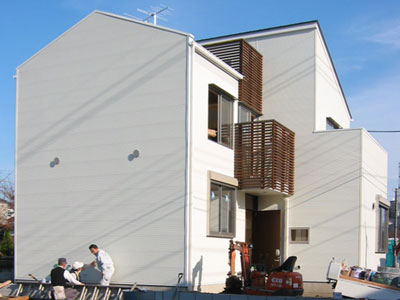Cost Comparison: Repair or Replace Your Water Heater

본문
 When a water heater starts to sputter, leak, or simply fail to deliver hot water, homeowners are immediately faced with two options: 名古屋市東区 給湯器 交換 repair or replace.
When a water heater starts to sputter, leak, or simply fail to deliver hot water, homeowners are immediately faced with two options: 名古屋市東区 給湯器 交換 repair or replace.The decision can feel overwhelming, especially when you weigh cost, potential downtime, and long‑term reliability.
Below is a practical guide that breaks down the key considerations and helps you decide which route makes the most sense for your household.
Basics of Water Heaters
A water heater is basically a storage tank that keeps hot water for your kitchen, bathroom, laundry, and more.
The two dominant types are tank and tankless (on‑demand).
Most traditional homes use tank units, but the decision between repair and replacement applies to either type.
Typical Repair Costs
Repair costs differ depending on the problem. Common issues include:
Sediment buildup that cuts heating efficiency (commonly solved with a simple drain and flush)
Corroded heating elements (replacement can range from $100 to $250)
Leaking valves or fittings (normally $150 to $350)
Faulty thermostats or control panels (often $200 to $500)
These estimates include parts and labor.
If a repair is needed for a tank water heater, the average cost generally falls between $200 and $600.
For a tankless unit, repairs are usually higher—often $400 to $800—since components are more complex and harder to reach.
Typical Replacement Costs
Replacing a water heater can be a more substantial investment.
For a standard 40‑gal tank, the total cost (unit plus installation) generally ranges from $700 to $1,200.
A newer, high‑efficiency model can push that figure to $1,200–$1,800.
Tankless units are pricier upfront: a 50‑kW system can cost $2,500 to $4,000, with installation.
Installation costs often represent the largest variable.
A skilled plumber can install a tank unit in an hour or two for a few hundred dollars, whereas a tankless unit may require venting, electrical upgrades, and plumbing modifications that add several thousand dollars to the bill.
Age and Condition Matter
One of the most reliable indicators for whether to repair or replace is the age of the unit.
Most conventional tank heaters have a lifespan of 8–12 years, while tankless heaters can last 15–20 years with proper maintenance.
If your water heater is close to the upper end of its expected lifespan, the cost and risk of another repair exceed the benefit of a new installation.
Efficiency and Running Costs
{Newer water heaters are typically more energy‑efficient, meaning they use less electricity or gas to heat the same

댓글목록0